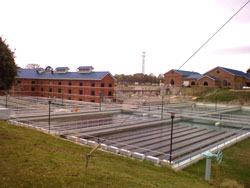Protecting Your Drinking Water and FAQs
Whether your drinking water comes from a lake, river, reservoir, or groundwater, it's important to protect the source from contamination. One of the best ways to protect your drinking water is to prevent pollution from getting into your drinking water source. Your drinking water can become polluted with animal waste, fertilizer, pesticides, herbicides, motor oil, gasoline, and other substances as they get carried to the source by runoff pollution.


